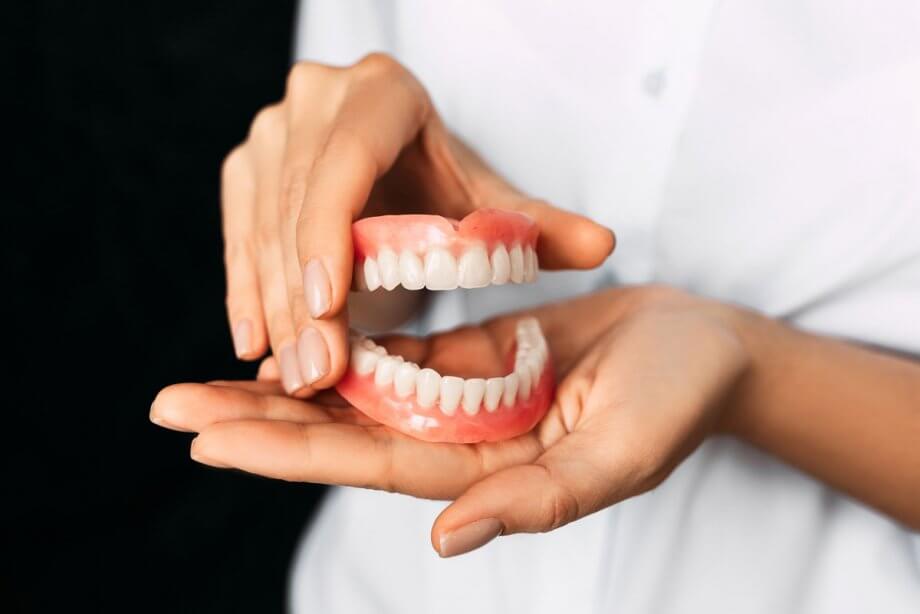Most of the time patients who need dentures are able to get them without any preparation or additional procedures. In other circumstances, pre-prosthetic surgery is needed in order to prepare the jawbone underneath the gums to comfortably support a full or partial denture. If you’ve been told you need oral surgery for dentures, here’s what you should know.
When Pre-Prosthetic Oral Surgery Is Needed
One of the reasons you might need dentures is because you need a restoration that doesn’t require the support of surrounding teeth. Dentures have the advantage of not requiring any adjacent teeth to secure them in place, but that doesn’t mean your dentures don’t need any support at all—they rest on the gums and the bony ridge just beneath them.
When this ridge is uneven or too sharp, it can make wearing dentures an uncomfortable experience. Even with adhesive pastes, your dentures can slip and shift unexpectedly throughout the day. This can make it hard to eat and cause slurring when you speak. With constant shifting and slipping, your gums can become irritated and painful sores may develop.
While dental implants are the ideal solution for this problem, we understand that they are not an option for every patient for a variety of reasons. Pre-prosthetic surgery allows us to prevent many of the complaints patients have about conventional dentures by reshaping the bone so a full or partial denture will fit securely.
Options for Pre-Prosthetic Surgery
Pre-prosthetic surgical procedures are minor outpatient surgeries that are performed right in our office. The most common pre-prosthetic surgeries we perform at Rio Grande Oral Surgery & Dental Implant Center include:
- Bone smoothing and reshaping – Smoothing and reshaping the bone prevents the development of sore spots where a denture rubs and causes irritation. Although this is often performed as a pre-prosthetic surgery, it can also be performed in patients who already have dentures and are experiencing discomfort.
- Bone ridge reduction – This is another procedure used to alter the bony ridge in order to ensure that dentures fit comfortably and securely.
- Removal of excess bone or soft tissue – Excess bone and soft tissue can either prevent a denture from being fitted or cause it to be uncomfortable or unstable.
Sometimes only one of these procedures is needed, but other times we may perform a combination of procedures, depending on your needs.
Recovery from Pre-Prosthetic Surgery
After your procedure, you will experience some discomfort for a few days afterwards. We’ll provide you with detailed aftercare instructions to help you manage any pain and minimize risk of complications. Eating a soft foods diet, getting rest, and using cold compresses can help you heal faster and get back to normal sooner.
Once the bone and soft tissues have healed after your pre-prosthetic surgery, you’ll be ready to visit your dentist or prosthodontist to have your denture fitted.
Learn More About Oral Surgery for Dentures
If you have questions about oral surgery for dentures or you’d like to schedule a consultation, contact us today at 505-821-2111 to make an appointment with Dr. Drew Steel.

